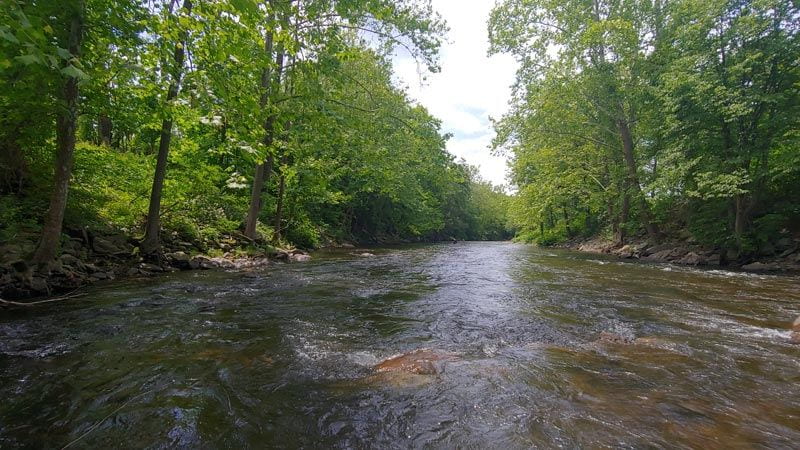The mission of the Stroud Water Research Center, an organization based in Avondale, Pennsylvania, is “To advance knowledge and stewardship of freshwater globally through research, education, and restoration work”. The Stroud Water Research Center shares a watershed with us, making their work directly impactful on the water of Delaware.
Dr. David Arscott is the Executive Director at the Stroud Water Research Center and has been with the center for 15 years. He holds a Ph.D. in freshwater ecology from the Swiss Federal Institute for Environmental Science and Technology. He has additional expertise in aquatic and invertebrate ecology, water chemistry, hydrology, algae ecology, and water resource management.
I recently had the opportunity to speak with Dr. Arscott about the work done at the Stroud Water Research Center and found the great variety and extent of their research and community involvement impressive and eye-opening. The Stroud Center has a couple of primary initiatives beyond its overarching focus on freshwater research/innovation, which are: environmental education, and watershed restoration, which focuses on helping farm operations improve environmental stewardship.
The environmental education program has about 10 part-time educators working with kindergarten through adult groups. The Stroud Center runs education programs at the center for learning about stream ecology, visiting schools to speak with students about their work, and has a citizen science program that allows non-professionals to learn about various environmental sciences.
The watershed restoration program implements research projects aiming to improve water quality and quantity through better agricultural practices. This program also develops opportunities for research where the ecology and restoration fields intersect. Many restoration projects happen at the Stroud Center and around our local watersheds.
The farm operations program at the Stroud Center seeks to answer questions like: “What are the farming operations that can improve or add to soil health?”. Researchers within this program are working to improve water filtration and reduce pollution runoff. Improving soil health (among other things) will potentially reduce the need for fertilizers and pesticides. Researchers also study conservation farming techniques like cover cropping and reduce and no-till practices, and tracking chemical use in farming. One notable study was done on neonicotinoid chemicals, which are insecticide coatings used around soybeans and corn. When plants absorb the insecticide through their tissue while germinating, they gain protection from insection damage. However, this insecticide poses consequences for pollinators, butterflies, and other elements of the ecosystem. Researchers at the Stroud Center are studying how long it takes for this chemical to flush from soil systems and whether its removal produces more positive or negative effects over time.
Stroud Water Research Center collaborates with the university on two main projects, which are the erosion of farm soils into flood plains and the impact of legacy sediments on our waterways and various ecosystem processes. These projects are led by microbiologist, Dr. Jinjun Kan, and Dr. Marc Peipoch, who studies sediments, microbes, and nutrient cycling and their relationships to dams and dam removal on waterways. Dr. Holly Michael, the director of the Delaware Environmental Institute (DENIN), is also involved with the Stroud Center and is a member of the Stroud Center’s board of directors.
Dr. Arscott oversees the projects happening at the Stroud Center but primarily focuses on software development for water quality and hydrology models.
The website that Dr. Arscott is most involved with is WikiWatershed: https://wikiwatershed.org/.
This website essentially utilizes sophisticated geographic information systems (GIS) to understand the land cover, soil, water, and climate of the lower 48 states (all of the United States except Hawaii and Alaska).
The Stroud Center publishes an annual report of its research findings that can be accessed at this link: https://stroudcenter.org/annual-reports/
The individual publications from the Stroud Water Research Center can be accessed through this link: https://stroudcenter.org/publications/
If you are interested in working with the Stroud Water Research Center, there are internship opportunities that are posted annually around February and March.
Additionally, job opportunities at the Stroud Center can be accessed through this link:
https://stroudcenter.org/jobs/
Dr. Arscott explains the goal for the center as “Having a science program that productively addresses challenging questions to meet society’s needs”. The Stroud Center hopes to understand both natural and human-induced changes in the environment and their ideal future is one in which they are deemed obsolete because they have solved all of the problems related to freshwater and the environment.


